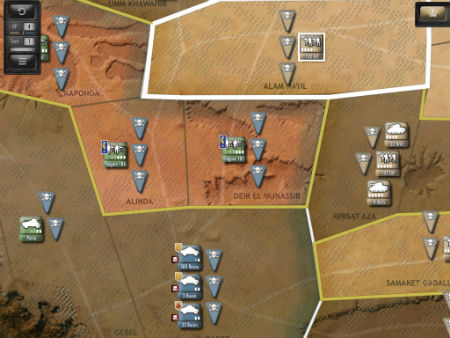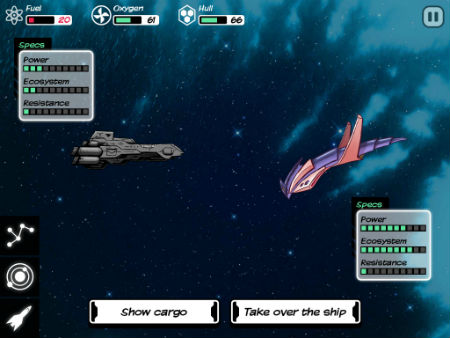'Where's the Android version?!' Why some studios fear porting premium iOS games to Google Play
Your number one comment, answered

The most common comment we get here on Pocket Gamer is some variation on "is it coming to Android?".
However it's phrased, you can almost hear the anguished plea behind each one. While developers shower iOS gamers with lavish premium titles, Android users are often left feeling short-changed.
But why? Android is more popular than iOS as a mobile operating system, so sidelining the former group seems like commercial madness.
Well, there are a couple of obvious reasons. It's well known that Android owners spend less on apps, but that seems like circular logic. They spend less partly because there's less quality software. If the games were there, there's a rapacious audience just waiting to start snapping them up.
Another commonly-cited justification is fear of piracy. Figures on this are hard to come by, but what's out there suggests it's almost as bad on iOS as it is on Android. And personally, I'm skeptical that there are enough tech-savvy people out there for this to be a major problem.
Piracy figures are often quoted as percentages of sales, so if sales are low to start with, they can look staggering. I'll wager it's a rather lower proportion when it comes to big-selling titles.
I put this conundrum to Nick Karp, chief operations officer at Shenandoah Studios. The studio make high price (and high quality) strategy games like Desert Fox, but have chosen not to port any to Android. He confirmed that the usual issues around ports were a problem for them, but added another.
"Our games are text-intensive," he pointed out. "And though zillions of Android devices are out there, many are in regions where English is not common, because the devices cost less."

This is true of a fair number of premium titles, which tend to rely a lot on text or voice acting. International language support is expensive, putting it out of reach of many small to medium studios.
And there's another reason smaller developers tend to stay away. "Another issue for us is opportunity cost," Karp explained. "When dealing with an inherently low-volume topic, where do you allocate limited resources?"
While that might seem specific to niche titles, it does have wider resonance. For any small company with a tight budget, Android represents a risk. The port might be easy, or it might turn into a technical nightmare due to fragmentation. It might sell well, or users might ignore it or, worse, source it from pirates.
Karp was keen to point out just how big that risk is. "We're constantly looking to see who is making money in Android," he told me. "So far we haven't found any evidence that anyone is making money on premium games there. I'm hoping to be proved wrong!"
Well, we have some news for him. There's at least one acclaimed high-cost title that's done well on the platform. Sci-fi exploration game Out There has apparently sold as well on Android as on iOS. Michael Peiffert, Creative Director at Mi-Clos Studios told us that "as of today, 50 percent of Out There revenue is coming from Android."
He was clear on the factors that lead to this success. "My strategy was to launch on both iOS and Android simultaneously," he explained.
"For me, mobile is one single platform. The awareness you’re building with press and social media profits to both platforms. Then, anybody with a smartphone that reads an article about the game becomes a potential buyer."

Another part of his approach was to circumvent the usual Android port problems right from the beginning. "We used Corona, a Software Development Kit that runs on iOS and Android with the same code," Micheal said. "It revealed itself to be very stable on almost every Android device."
But there were some creative approaches to marketing, too. "We did something that nobody did before," Micheal told us. "Out There was available for pre-order on Android with a beta access, three month before launch. Thanks to the Humble Widget, we could generate infinite keys that we sent to Youtubers."
He knew full well that most YouTube reviewers are PC-based, of course. "We told them to use Bluestacks, an Android emulator. At launch, we had hundreds of "let’s play" on Youtube and I believe it helped a lot in building pre-launch awareness. This operation wouldn’t have been possible if we only had an iOS build."
Ultimately, however, Micheal is modest about the amount of impact ruses like that had on the launch. He credits most of the success to the simple factor of caring for your audience. "Many users on Google Play say this is the first game they paid for because it has actual, meaningful gameplay," he said. "We have real gamers here, coming from the PC, that now have tablets and are willing to pay for real games. Why are they so under-served?"
He has a point. As an often ignored audience, Android users reacted to his efforts by buying his game by the bucketload.
One niche developer that has experimented with Android releases is Slitherine. It's another purveyor of premium strategy games, focused on PC and iOS. But it recently put out an Android port of Silver Award-winning chariot racer Qvadriga.
We spoke to Iain McNeil, the studio's development director, about how the title had faired on Google Play. "It's one of the games with the highest percentage of sales on Android compared to iOS," he told us.
But while it's selling well comparatively, the actual figures tell a different story. "It's about 80/20 in favour of iOS," McNeil revealed. "That's significantly above average. Most sell around 10 percent of the numbers they do on iOS. But still a long way off what can be achieved in the App Store."

That, in itself, illustrates the opportunity cost problem that we talked about earlier. So was there a reason why Slitherine felt able to take a chance on porting this particular game?
"Qvadriga was developed in Unity so the cost of creating an Android version is much much lower," McNeil said. "At the moment we only plan to do Android versions of games that are being built in Unity as these are the only ones where the costs make sense."
He had some interesting information on why premium games sell less well on Android. "It’s not about the price, it’s about a culture of expecting games to be for free," he explained. "If you look at the numbers of units the top selling paid Android apps have sold is scary how low they are. Compared with the best selling free to play Android games they are orders of magnitude apart."
"Another big issues is the store," he continued. "When a new game releases its almost impossible to find. Visibility is more of an issue on Android than it is on iOS. The only way to make it visible to people is to get it in the best selling new releases section. But this can be a challenge when nobody can even see your game exists!"
Some of the more commonly quoted problems with Android ports are becoming easier to deal with. Game making software like Unity is making it easier than ever to publish on multiple operating systems.
And it's clear that the user community is keen to embrace any premium developer who dares dip a toe into their barren waters.
But it seems that lurking underneath are a more complex set of issues, which need further effort for marketers to unravel. It seems as if it's going to be some time before we can answer "coming to Android?" with a more positive response.
